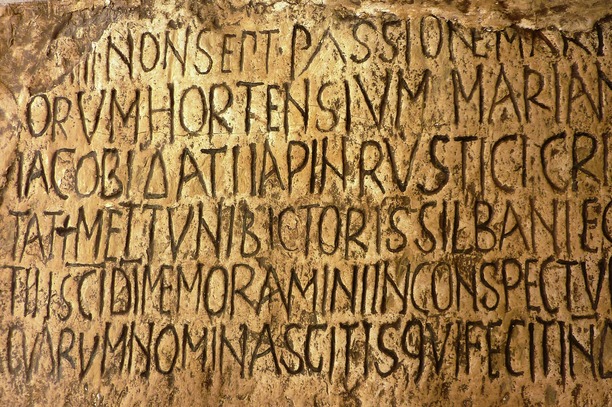Your cart is currently empty!
“Non scholae, sed vitae discimus.”
Committed to an applied Latin approach in your academic, professional & modern-day world.

Consulting Services
Ready to learn more? Contact Me.

Student International Exchanges
Explore Global Opportunities. Contact Me.

Publications/Books
Coming Soon…
A passion for applied Latin
A comprehensive suite of Latin courses, from introductory to scholarly and professional levels, designed for any stage of life.
- Greco/Roman Mythology
- Rome’s History in 3 Parts:
Monarchy, Republic, and Empire - Ancient Roots of Medical Terminology:
Unlocking the Language of Medicine - Legal Latin & Terminology:
From Roman Law to Modern Jurisprudence - AP Latin:
Exploring Roman Literature and Thought - English Language Learners & S.A.T Testers:
Supercharge Your Vocabulary with Latin’s Ancient Roots
- Dive into the myths behind the names of popular products and services—Amazon, Atlas, Honda Odyssey, Ajax, Pandora (jewelry and radio), Hermes (messenger bags), Promethean Board, Elysium, and more—discovering how ancient legends live on in our everyday lives.
- Explore the tales of gods, heroes, and the moral lessons woven into the fabric of ancient religions and belief systems that endured for millennia. These myths still resonate today, shaping art, literature, music, and film, from The Hunger Games to Harry Potter, and influencing band names and music titles like Muse, Aphrodite’s Child, Venus by Shocking Blue, and Achilles’ Last Stand by Led Zeppelin.
- The influence of Greco-Roman mythology extends beyond pop culture into the very fabric of our language and society—shaping the names of the days of the week, planets, stars, constellations, and NASA’s celestial naming conventions. Learn how the names of elements like Hg (Mercury), Ir (Iris), Ta (Tantalum), Nb (Niobium), Pu (Plutonium), and U (Uranium) are all derived from mythological figures.
- How do ancient Rome’s institutions continue to shape modern government and society? Study Rome’s three foundational periods: the Monarchy, the Republic, and the Empire, revealing how each era laid the groundwork for the systems we use today.
- The Monarchy: Begin with the birth of Rome, April 21, 753 BCE, studying its early kings and the foundational structures of Roman society. Learn how early practices and decisions paved the way for future Roman institutions.
- The Republic: Examine the rise of the Republic, where power was shared through elected leaders and assemblies. Discover how pivotal concepts such as veto (Latin for “I forbid”), democracy, ostracism, and eminent domain emerged. How did the Romans influence the development of modern legal systems, including Alexander Hamilton’s use of the Latin pseudonym Publicius for his Federalist Papers?
- The Empire: Follow pivotal events like the legalization of Christianity and other religions in 313 A.D. Analyze the Senate’s ancient roots, transformation, and its lasting influence on today’s senate.
- Empower your future medical career by mastering the language of medicine, rooted in ancient history and healing practices. This course offers a deep dive into the Latin and Greek origins of modern medical terminology, providing essential insights into the roots behind terms used every day in healthcare.
- Study ancient treatments and remedies, alongside key texts like Martial’s 1st century C.E. epigrams, which humorously yet insightfully critique physicians and their practices. These writings remain eerily relevant to today’s medical challenges.
- This course will equip you with the tools to decode complex medical terms, enhancing your clinical practice and strengthening your grasp of the language and history of healthcare.
- Master essential legal terms rooted in Roman law and the Justinian Code, connecting ancient principles to contemporary legal language and practice. Explore foundational terms such as Mens Rea, Habeas Corpus, Pro Bono, Certiorari, Amicus Curiae, De Novo, In Camera, Alibi, Subpoena, and Usufruct.
- Delve into how these Latin phrases continue to influence modern legal theory, courtroom strategy, and legal practice. Whether you’re preparing for law school or advancing your legal career, this course will sharpen your legal vocabulary and deepen your understanding of how Roman law shaped the foundations of Western jurisprudence.
- Immerse yourself in the rich history of Latin literature and Roman thought. This course focuses on Vergil’s Aeneid and the letters of Pliny the Younger, while also incorporating works by other influential 1st-century authors such as the neoteric, Catullus, Horace, and Cicero. While Vergil and Pliny take center stage, we will explore the contributions of these writers to Roman culture, politics, and literary traditions.
- Master the art of translation and interpretation, gaining insight into the minds of some of Rome’s greatest thinkers. This course is highly recommended whether you’re preparing for the new 2026 AP Latin exam (Pliny the Younger replacing Julius Caesar) or deepening your understanding of Rome’s literary legacy that continues to shape the Western world.
- Are you hoping to improve your English language and vocabulary skills? Ancient Latin elevates your verbal reasoning and comprehension skills. Supercharge your SAT vocabulary with Latin roots, from ubiquitous to magnanimous, superfluous to cynical, nascent, impecunious, and words like laconic, obfuscate, nefarious, pulchritude, perspicacious, sagacious, intransigent, and vicissitude. Learn how Latin’s lasting influence on English can help you decipher complex words, improve academic performance, and boost your confidence.
- By understanding the building blocks of words, you’ll gain a deeper mastery of vocabulary, equipping you for success in writing, presentations, exams, and beyond.
Courses
Doctrina Latina: Our Comprehensive Latin Educational Services

Medical School Terminology & Ancient Practice
Master the Latin and Greek roots behind medical terms, as well as ancient practices -Discover the work of ancient physicians, Hippocrates & Galen. This course is in English, alongside optional-leveled Latin readings.
Prerequisite: No previous Latin required. Instructor introduces leveled- Latin readings based on your Latin background.

Law School
Terminology
Master Legal Latin for Modern Practice – Unlock the meaning behind essential terms like Amicus Curia, Malum in Se, Malum Prohibitum, Habeas Corpus, Mens Rea, and Subpoena, connecting Roman law to today’s legal world.
Prerequisite: No previous Latin required. Instructor introduces leveled-Latin readings based on your Latin background.

S.A.T & English Language Learner Vocabularly Builder
Boost Your SAT Vocabulary with Latin Roots – Master powerful Latin words like “laconic,” “nefarious,” and “vicissitude” to supercharge your verbal reasoning and comprehension.
Prerequisite: No previous Latin required.

AP Latin Exam Prep
(Vergil + New Pliny the Younger, et. al)
Dive into Roman Literary Masterpieces – Explore Vergil’s Aeneid and Pliny the Younger’s letters, along with works by Catullus, Horace, and Cicero, to understand the cultural and political impact of Rome’s greatest authors.
Prerequisite: Latin III

Custom Designed Mythology, Roman History, or Latin Literature Courses
Discover Myths in Everyday Life – Uncover how ancient Greco-Roman legends influence art, music, and literature. Mythology & Literature are in English or Latin or combination of both, depending on learner experience in Latin. History is in English
Prerequisite:

Reading Latin Authors
Discover the Foundations of Science and Philosophy – Study Lucretius’ De Rerum Natura to explore early theories on atoms, nature, and the universe, laying the groundwork for modern science and philosophy.
Prerequisite: Latin III
What my students are saying
Kirk P.

“Your influence and teaching have ignited a passion for languages that I hope to cultivate further in college.”
Ameera V.

“The effects of learning Latin from you have been far reaching and long-lasting in ways I wasn’t expecting.”
Nikitha H.

“So thankful to you. I was at a meeting for UN Youth Envoys, UN Youth Observers, and other young leaders who have already influenced so many people and are spreading this passion with other youth around the world. I heard so many of these speakers mention the Classics and philosophies from Roman and Greek times and couldn’t help but think of you and how you taught us to think that way too! Thank you! I miss your class!”
Oliver V.

“Thanks to you, I am really passionate about keeping learning languages, and I’m applying for the Critical Language Scholarship which is hosted by the Department of State, it’s a very very selective scholarship especially for freshman but I hope to do it some time in these next years.”
Maggie H.

“After visiting Italy with your class, I now hope to do a study abroad in Italy or Greece and learn in a more experiential way about the history there. Thank you for inspiring me.”
Madeleine D.

“I have learned so much not only about the Latin language and grammar that I signed on for, but also about ancient Roman and Greek religion, culture, geography, and so much more! I love sharing so many stories about what I learned in Latin with my family, and I know my parents are impressed. I remember one day I was watching Gladiator 2 in theaters with my family, and I couldn’t shut up about all the information that I already knew about everything. That was the day I realized how much I learned in these two semesters, and I can’t thank you enough for that!”
George S.

“My son, who is currently preparing for the AP Latin Exam, appreciates your teaching enthusiasm and patience and says you are providing help in areas he needs the most help with for AP.”
Cheryl N.

“My daughter remarked she was able to cover a great amount of complicated Latin grammar with great clarity.”
Andrew W.

“Extremely knowledgeable and easy to work with, according to my daughter, who loved learning Roman Law & History from you in pre-law.”
An array of resources
A comprehensive catalogue of resources caters to diverse learners:
– World Leaders & Entrepreneurs
– Musicians / Actors / Athletes
– Authors












